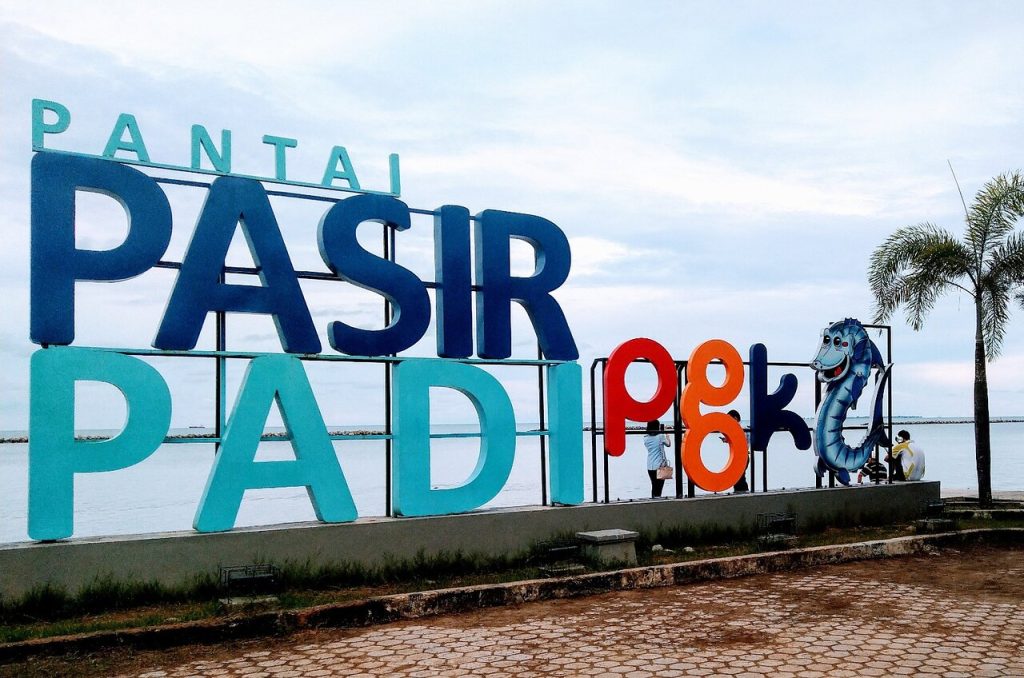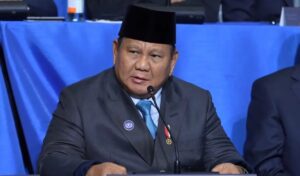Indonesian Pasir Padi Beach transforms into a world-class tourist destination

Pangkalpinang City, The Gulf Observer: Tourism development focused on attraction, accessibility, and amenities (3A) at Pasir Padi Beach, Pangkalpinang City, Bangka Belitung Islands Province, is a part of the local government’s efforts to make it a world-class destination.
As the capital of the province, Pangkalpinang city is not only known as a center of services, trade, and governance, but also as a local, national, and international tourism destination.
To make Pasir Padi Beach a world-class beach tourism destination, the government of Pangkalpinang city is currently developing the area using the 3A concept. This is aimed at ensuring the smooth management of the beach so that it can become a tourism magnet.
Attractions comprise the things tourists can do and see at a destination, such as enjoying its scenery and local culture, visiting historical sites, as well as playing at game and entertainment parks.
Accessibility covers the facilities and infrastructure used by tourists to reach a destination, such as roads and transportation.
Meanwhile, amenities refer to the supporting facilities provided at a tourism destination besides accommodation, for instance, restaurants, souvenir shops, worship places, and health facilities.
While inaugurating Pasir Padi Amenities, Head of the Presidential Staff Office (KSP) Moeldoko said that amenities could become the economic strength of a destination because they have extraordinary development potential.
He also expressed support for the local government’s effort to develop local culture as a tourism strength as well as a means to unify the nation.
Local cultures should not be forgotten in the midst of the development of the regional economy; in fact, the cultures must continue to be bolstered from time to time and the younger generations need to be involved in preserving them, the KSP head emphasized.
“I have seen (the implementation of) these 3A and (I hope), in the future, (the concept) will be further improved,” he said.
Thus, regional governments have been asked to make the 3A concept the local economic strength, as economic power will rise if it is supported by social and cultural powers.
Furthermore, Moeldoko said that the community’s enthusiasm for culture should not vanish, on the contrary, it must be developed further because culture is the strength of a nation.
Pangkalpinang Mayor Maulan Aklil said that his party has been consistently striving to ensure that the development of the city can be on par with the development of several big cities in Indonesia that are modern and smart cities as well as economic growth centers.
Apart from developing the 3A concept, the government of Pangkalpinang city has also started implementing digitization in all sectors to help creative economy actors develop and market their products globally.
Currently, Pasir Padi Beach is being developed as a modern, safe, comfortable, and fun tourism destination.
In the near future, some South Korean investors will be involved in developing more facilities at the beach.
Bangka Belitung Islands province has several tourism objects, such as Belitong Geopark. It was added to the United Nations Educational, Scientific, and Cultural Organization (UNESCO) Global Geoparks (UGGp) list in 2021.
Although Pasir Padi Beach is not a part of the Belitong Geopark, its beautiful scenery epitomizes the natural charm of Bangka Belitung.
The location of the beach, which directly faces the South China Sea, is the main draw for tourists.
The beach has a good access road and can be easily reached using motorbikes and cars. It also has adequate parking.
It takes only 20 minutes to reach Pasir Padi Beach from the downtown of Pangkalpinang, of the City of Thousands of Smiles, which is located about 10 kilometers away.
Currently, Pasir Padi Beach has complete facilities for providing convenience to visitors, such as prayer rooms, toilets, cafes, restaurants, parking areas, and public baths.
In addition, there are lodgings close to the beach.
History and facilities
Many people may wonder why the beach is called Pasir Padi, which means “paddy sand,” although it is a beach, not a farming area.
Well, the history of Pasir Padi Beach is indeed tied to the rice planting program implemented near the coastal area during the Dutch East Indies era.
Over time, the area that was once used as a rice field became overgrown with coconut trees. Hence, historically, the area once held an important role in building a food security system.
Nowadays, people are more familiar with Pasir Padi Beach as a tourism destination. Given its exotic white sands and modest waves, tourists are comfortable bringing their families to the beach.
Youngsters often visit the beach to hang out and take scenic photos. Currently, the area is not only known for its natural beauty, but also culinary tourism.
Along the coast, there are many stalls selling various foods and drinks as well as seats facing the open sea. There is also a floating restaurant on the beach.
The cafes on the beach, which are always humming with music, are also favorites among visitors, especially young people.
In addition, Pasir Padi Beach also has a public bath, which is popular among holidaying families.


